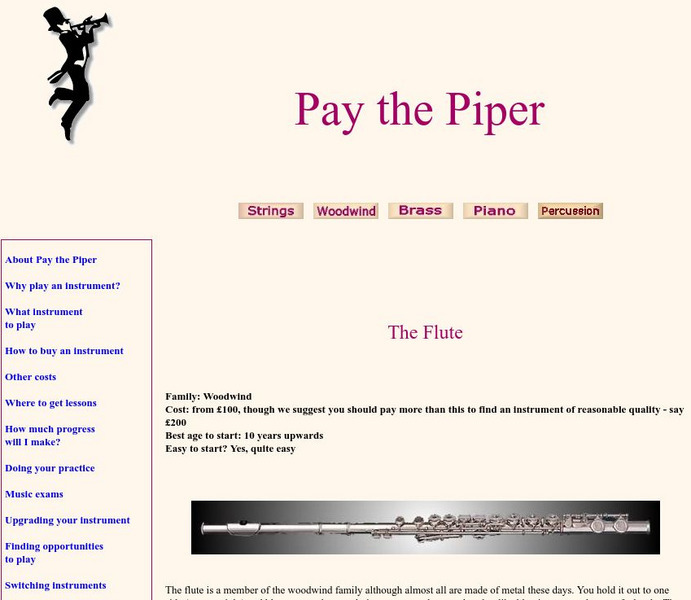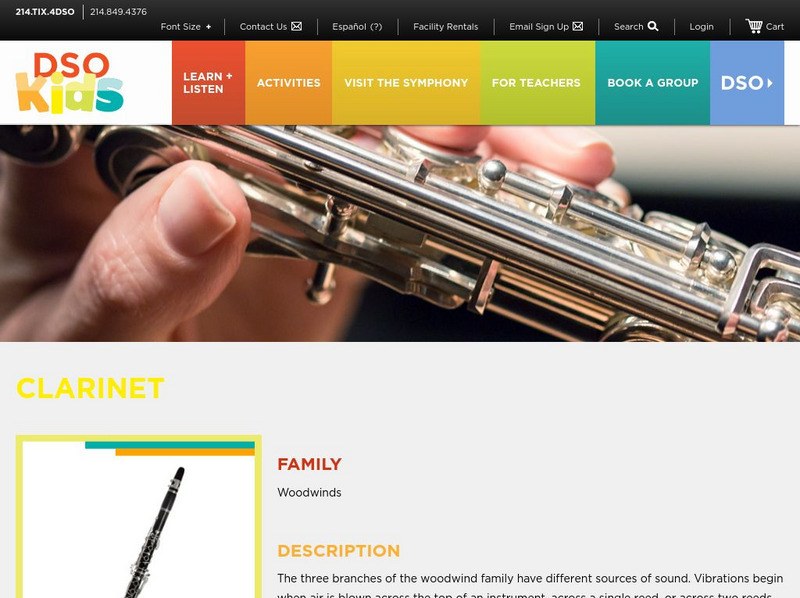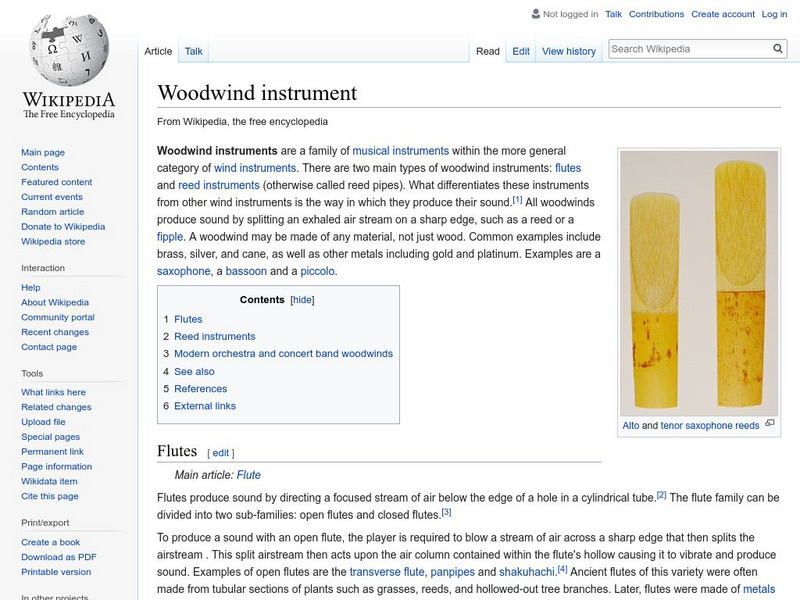Curated OER
The Brass Family
Students observe a PowerPoint presentation to explore how brass instruments produce wounds. They observe the teacher demonstrate the proper use of the mouthpiece and slides to produce a tone. With and without the mouthpiece, students...
Curated OER
Exploring the Brass Family
Third graders explore the four basic instruments of the Brass Family in the four lessons of this unit. The French horn, trumpet, trombone, and tuba are inspected as students develope a familiarity with their sight and sounds.
Other
Circular Breathing
Circular breathing is a method of breathing that is used to "maintain a sound for a long period of time." This article explains how to engage circular breathing as a technique for playing the instrument.
PBS
Classics for Kids: Musical Instruments
An A-to-Z directory of all the instruments and tools of the orchestra. Each entry includes a description, a picture, and a sound sample.
University of Michigan
The University of Michigan: Instrument Encyclopedia: Transverse Flute
In addition to providing general information on the transverse flute and references for further reading and research, this lesson includes an audio file so that you can hear "the sound of a baroque wooden flute."
Other
Pay the Piper: The Bassoon
Learn about the Bassoon, "the largest member of the woodwind family," at this website. The site is geared toward young students who are thinking about playing a musical instrument.
Other
Pay the Piper: The Flute
Learn about playing the flute at this website, which is geared toward young students who are thinking about playing a musical instrument. Includes background information on this woodwind, and links to more information.
Other
Pay the Piper: The Oboe
This website, geared toward young students who are thinking about playing a musical instrument, provides the "pros and cons" of playing the oboe. The site provides background information about this woodwind and related links as well.
Other
Pay the Piper: The Saxophone
This is a site to read about the advantages and disadvantages of playing the saxophone. The page gives great background information about this woodwind instrument.
Dallas Symphony Orchestra
Dallas Symphony Orchestra Kids: Flute
Read about the flute, how it produces sound, and how it's made. Learn about the woodwind family and the differences in the divisions in the three branches of this family. Use RealAudio or Windows Media Player to hear the flute alone, and...
Dallas Symphony Orchestra
Dallas Symphony Orchestra Kids: Clarinet
Use this resource to learn about the clarinet, and the characteristics of the woodwind family. Use RealAudio or Windows Media Player to hear the clarinet alone and with the orchestra.
University of Michigan
University of Michigan: Instrument Encyclopedia: Recorder
The University of Michigan provides general information on the "portable and accessible" woodwind instrument called the recorder. Includes several references for further research and links to information on duct flutes and transverse...
Wikimedia
Wikipedia: Woodwind Instrument
This site from Wikipedia provides an overview of woodwind instruments and discusses the three types of woodwind instruments and the difference between brass instruments and woodwind instruments.
ClassFlow
Class Flow: Orchestra Instruments
[Free Registration/Login Required] This flipchart describes the various instrument families and the instruments that fit in each family. Sound files are attached to the instruments so that students can hear what each sounds like.













